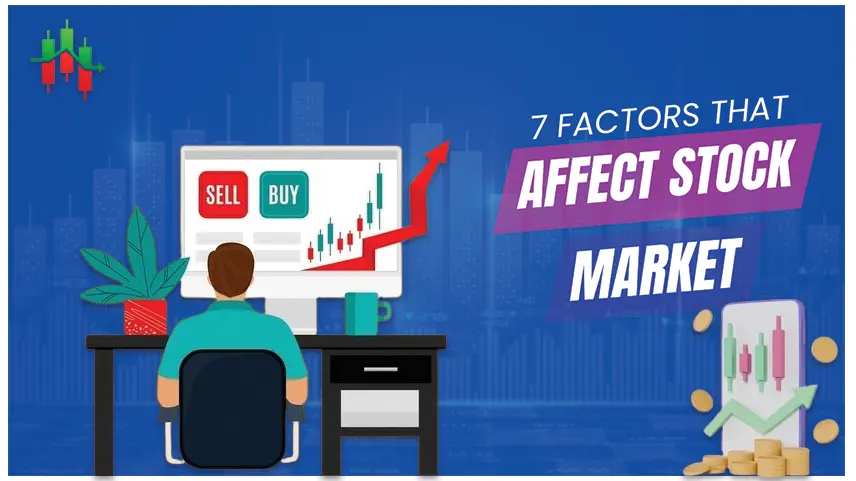7 Factors that Affect Stock Market
The stock market is a complicated system that is influenced by different factors. Some of these factors are fundamental, while others are based on external events that can affect the stock market's overall performance. Understanding these factors is important for investors as it can help them make informed investment decisions. In this article, we will analyze some of the key factors that can simulate the stock market.

7 Factors that Affect Stock Market
Economic Indicators
Economic indicators such as GDP growth, inflation, and unemployment rates can exceptionally affect the stock market. When the economy is growing and unemployment is low, companies are likely to perform well, increasing stock prices. Conversely, a recession can lead to a decrease in stock prices as investors become more cautious.
Interest Rates
Interest rates can influence the stock market in several pathways. When interest rates are low, borrowing becomes cheaper, encouraging economic development and leading to more elevated stock prices. Conversely, when interest rates are high, borrowing becomes more costly, slowing economic growth and leading to down stock prices.
Company Performance
The performance of particular companies can also affect the stock market. When a company performs well and meets or exceeds expectations, its stock price may increase. Conversely, poor company performance can lead to a reduction in stock prices.
Government Policies
Government policies can also affect the stock market. For example, changes in tax policies or regulations can impact specific industries, leading to changes in stock prices. Additionally, government spending can stimulate economic growth, leading to higher stock prices.
International Events
International events such as wars, natural disasters, or political instability can impact the stock market. These events can lead to changes in the value of currencies or impact the supply chain, leading to changes in stock prices.
Market Sentiment
Market sentiment refers to investors' overall mood and trust in the stock market. Positive market sentiment can lead to a boost in stock prices, while negative market sentiment can lead to a reduction in stock prices.
Industry Performance
The performance of specific industries can also influence the stock market. For example, if the technology industry performs well, it can increase the stock prices of technology companies. Conversely, poor performance in a specific industry can lead to a decrease in the stock prices of companies in that industry.
Conclusion
The stock market is a complicated system influenced by different factors. Understanding these factors can help investors make instructed investment judgments. Economic indicators, interest rates, company performance, government policies, international events, market sentiment, and industry performance are all factors that can affect the stock market.

0 comments